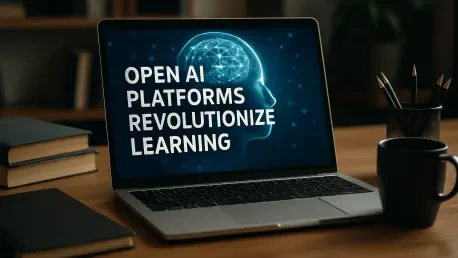In a landscape where artificial intelligence continues to reshape industries and redefine possibilities, a pressing challenge emerges in the field of reinforcement learning (RL)—the growing exclusivity of training environments controlled by major tech giants. This critical area of AI, where agents learn through trial and error in simulated worlds, often hinges on access to dynamic, realistic scenarios that mimic real-world complexities. Yet, with substantial financial backing, large AI labs have increasingly privatized these environments, creating formidable barriers for smaller players and open-source communities. Amid this backdrop, a San Francisco-based startup, Prime Intellect, has launched an ambitious initiative called the Environments Hub, an open platform designed to democratize the creation and sharing of RL environments. This development sparks curiosity about whether such collaborative tools can truly shift the balance of power in AI innovation, fostering inclusivity and challenging the dominance of proprietary systems.
Breaking Barriers in AI Development
Addressing the Privatization Challenge
The trend of privatization in reinforcement learning environments has become a significant obstacle to equitable AI progress. Major labs, with their vast resources, have developed sophisticated virtual worlds for training AI agents, often keeping these tools under tight control to maintain a competitive edge. This exclusivity limits access for independent researchers and smaller organizations, stifling diversity in innovation. Prime Intellect’s Environments Hub steps into this gap as a bold countermeasure, offering a platform where anyone can contribute to or utilize RL environments. By promoting an open-source ethos, the initiative seeks to level the playing field, ensuring that cutting-edge AI development isn’t reserved solely for those with deep pockets. The hub’s mission is clear: to create a repository of shared resources that can rival proprietary systems through collective effort and creativity, potentially reshaping how the AI community approaches training and experimentation.
Fostering a Collaborative Ecosystem
Beyond merely providing access, the Environments Hub aims to cultivate a thriving ecosystem of collaboration among developers, researchers, and AI enthusiasts. This platform isn’t just a static library of environments; it’s a dynamic space where users are encouraged to design and share scenarios that test a wide range of skills, from coding proficiency to complex task management. To drive participation, Prime Intellect has implemented a bounty system, offering cash rewards for contributions that meet specific criteria or address unique challenges. This incentive structure not only boosts engagement but also ensures a diverse array of environments that can push AI models to adapt and improve in novel ways. By harnessing the collective intelligence of a global community, the hub could accelerate advancements in RL, proving that decentralized efforts might outpace the isolated, resource-heavy approaches of larger entities in the long run.
Shaping the Future of Reinforcement Learning
Empowering Next-Generation AI Models
A cornerstone of Prime Intellect’s strategy with the Environments Hub is its role as a training ground for their upcoming open-source model, INTELLECT-3, envisioned as a state-of-the-art agentic system. The platform acts as a data engine, drawing from user-generated environments to refine the model’s capabilities across practical and creative domains. This approach underscores a pivotal shift in AI development—leveraging community input to build robust, adaptable models that aren’t confined to the narrow datasets of a single organization. The diversity of contributed scenarios, ranging from filesystem integration tasks to imaginative writing challenges, ensures that INTELLECT-3 can tackle real-world problems with greater versatility. If successful, this model could serve as a benchmark for how open platforms can produce AI systems that rival those crafted in closed, high-budget labs, highlighting the untapped potential of collaborative innovation.
Championing Decentralized AI Principles
Prime Intellect’s broader mission, rooted in decentralized AI, further amplifies the significance of the Environments Hub. Founded by leaders with expertise in decentralized science and large-scale model training, the company is committed to pooling computational resources and sharing outcomes with the wider community. This philosophy is evident in their previous release of the decentralized INTELLECT-2 model and is reinforced by substantial funding from notable investors, signaling strong industry confidence in their vision. The Environments Hub embodies this ethos by breaking down infrastructure barriers, allowing developers from varied backgrounds to contribute without needing access to expensive hardware or proprietary tools. This decentralized approach not only democratizes AI development but also poses a direct challenge to the monopolistic tendencies of dominant players, suggesting a future where innovation thrives through shared knowledge and distributed systems rather than centralized control.
Reflecting on a Movement for Inclusivity
Looking back, Prime Intellect’s launch of the Environments Hub marked a defining moment in the push against the exclusivity that had long constrained reinforcement learning. It stood as a testament to the power of community-driven solutions in addressing systemic inequities within the AI field. The initiative demonstrated that open platforms could indeed challenge the status quo, providing a space where innovation wasn’t dictated by financial might but by collective ingenuity. As a lasting impact, it inspired a wave of collaborative efforts that reshaped how training environments were perceived—no longer as guarded assets but as shared tools for progress. Moving forward, the focus should remain on expanding such platforms, integrating more diverse contributions, and ensuring that incentives like bounties continue to attract global talent. Exploring partnerships with academic institutions and smaller tech firms could further amplify this movement, paving the way for a more inclusive AI landscape where every contributor plays a vital role in shaping tomorrow’s technologies.









